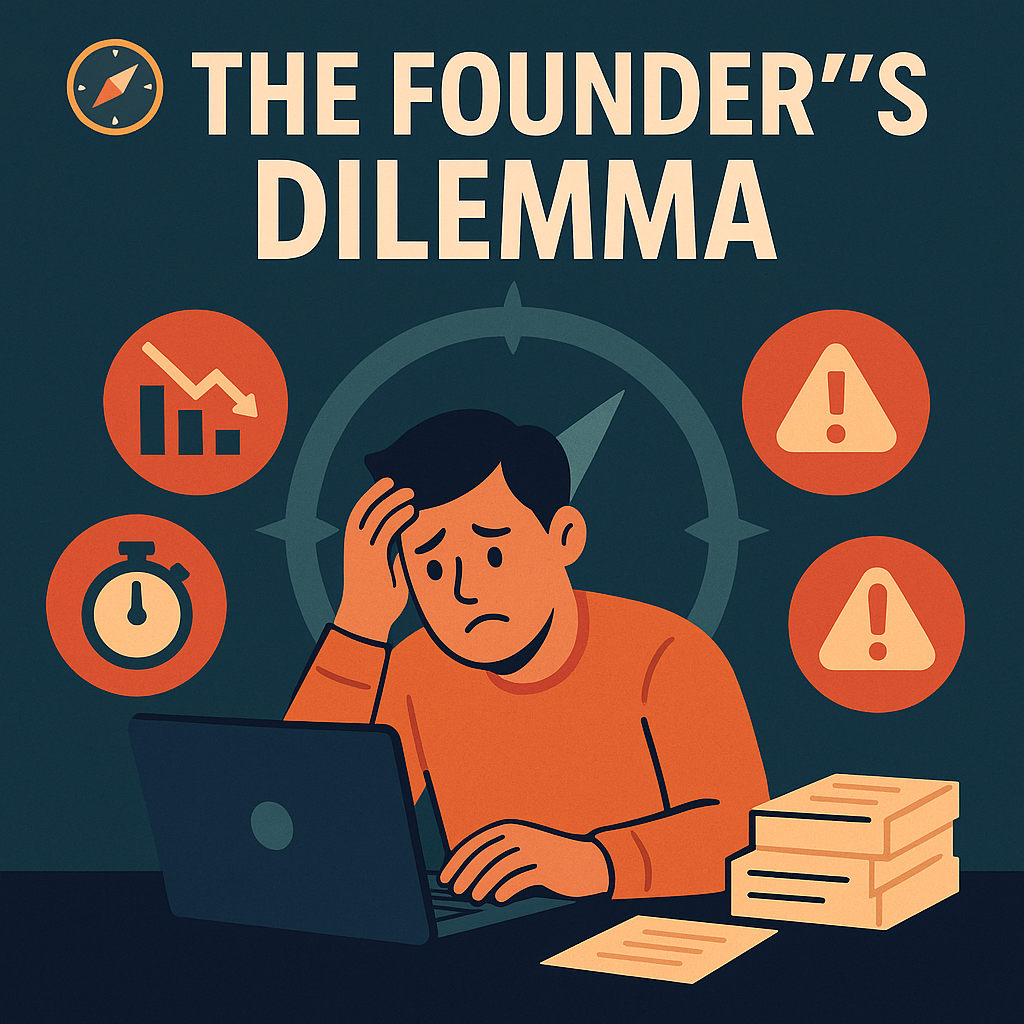
Startups don't implode because of bad ideas — they implode because good ideas get buried under execution chaos.
In the earliest days, chaos feels like momentum. Everyone’s sprinting. Roles are fluid. Things ship because people push, not because there's a system. That’s normal. “Move fast and break things” I have heard it called.
But here’s the issue: that same flexibility becomes a liability the moment you start to scale. Growth adds complexity. Complexity without discipline equals burnout, inefficiencies, missed deadlines, and serious opportunity cost.
And no, project discipline isn't red tape — it's your competitive advantage.
The Founder’s Dilemma
Early on, the founder plays every role: visionary, team lead, product strategist, maybe even part-time QA. The team is small and communication is mostly in real time.
So it makes sense that formal project management feels like overkill. Everyone’s an IC, a doer. There’s no one to manage, right?
But here’s what really happens in that mode:
What looks like “lean” (and this is not a argument against lean startups) is actually a lack of ownership. And as you add more people, the gaps widen without someone managing the momentum.
What Happens Without Project Discipline
When teams are running fast without structure, the same patterns show up over and over:
These problems don’t fix themselves. They compound. And the longer you wait to address them, the harder they are to unwind. It becomes the “Oh, that’s just how we do it here” comment.
What “Project Discipline” Actually Looks Like at Early Stage
Let’s be clear: we’re not talking about 100-slide decks or enterprise tools. At early stage, project discipline = clarity + cadence.
Here’s what that looks like:
Discipline at this stage should feel lightweight but consistent. Not bureaucratic chains and unnecessary meetings.
How to Know You’re Ready (Even If You’re Not Sure)
A lot of founders think they’re “too early” for structure. In reality, these signals say you’re already late:
You don’t need a team of project managers. But you do need someone watching the moving parts and making sure they’re connected.
What to Start With (That Actually Works)
No need to overthink it. Here’s how most startups get their first layer of discipline in place:
Final Thought
Every startup hits the same moment: things are working, but execution feels wobbly. That’s your sign.
Project discipline isn’t about slowing you down. It’s how you speed up. It’s about presence with a purpose. Not bloated oversight.
The best time to build it in is before it breaks.
The second-best time is today.
Add label